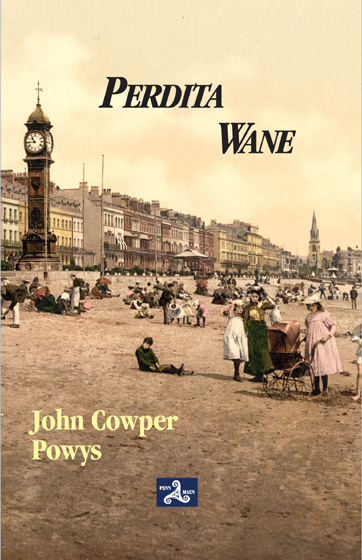| |
Ce roman de John Cowper Powys vous invite au dépaysement à travers trois voyages, D'abord un voyage pour ainsi dire hyper-réaliste au bord de la mer au sud de l'Angleterre dans le comté du Dorset où vous irez à la découverte d'une nature restée largement intacte encore aujourd'hui. Vous y trouverez les ouvrages des mains de l'homme dans l'état où Powys les avait connus avant de se retirer dans la maison où, au milieu des arbres non loin des Catskills au nord de la ville de New York, il a écrit ce livre. Le deuxième voyage est un voyage dans le temps vers une société où l'on pouvait encore vivre de leçons particulières de latin au cours desquelles il était demandé à de jeunes garçons de traduire une ode de Horace, ou même vivre en se consacrant simplement à une recherche philosophique grâce aux maigres revenus provenant de prudents investissements. Le troisième voyage est un dépaysement à la rencontre d'un style pourrait-on dire extensif par lequel Powys cherche à serrer au plus près sa pensée, et que nous avons tenté non sans mal de conserver. Powys truffe aussi son texte de citations qui, même entourées de guillemets, ne sont pas toujours attribuées, et pour lesquelles nous nous sommes efforcés de fournir les traductions ≪ officielles ≫ quand nous avons réussi à les identifier. C'est assez dépaysant de rencontrer un auteur qui fait suivre la citation élliptique ≪ c'est une idée naturelle ≫ par le commentaire ≪ comme celle de Hamlet à propos des jambes d'Ophélie ≫ et qui pense alors que le lecteur va se rappeler les mots ≪ C'est une idée naturelle de s'étendre entre les jambes d'une fille ≫ qui figurent effectivement dans la traduction de la pièce de Shakespeare...
|  |
The reader of this novel by John Cowper Powys will find himself travelling in unfamiliar surroundings. In the first place, he finds himself in a hyperrealistic version of Dorset near the sea on the south coast of England in which the natural world is yet pretty much as it still is but in which the works of man are as they were before Powys settled in the house among the trees not far from the Catskills north of New York where he wrote this book. He will also find himself in the foreign country of the past, in a society where a man can ensure his livelihood by giving Latin lessons to backward boys who are nevertheless expected to translate an ode by Horace, or even give himself up entirely to the study of philosophy thanks to the return on some prudent inherited investment. And then the reader is confronted by what might be called an "extensive" style by which Powys attempts to get as close as possible to what he wants to say, a style we have, not without difficulty, made every effort to reproduce. Powys also has no qualms about using quotes with or without quotation marks and with or without attribution ; wherever possible we have used authoritative translations of the original text to produce similar effects. But what an unfamiliar feeling arises when a character makes the elliptical quote "a fair thought" and follows it by the comment "like Hamlet's about Ophelia's legs" which Powys expects will remind the reader that Shakespeare actually wrote "That's a fair thought to lie between maid's legs"...
| |

